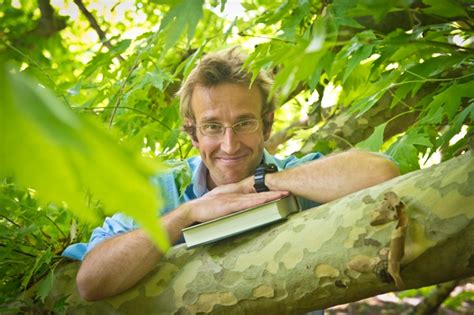Top 13 Quotes & Sayings by Robert Macfarlane
Explore popular quotes and sayings by a British writer Robert Macfarlane.
Last updated on December 21, 2024.
Woods and forests have been essentialt to the imagination of these islands, and of countries throughout the world, for centuries. It is for this reason that when woods are felled, when they are suppressed by tarmac and concrete and asphalt, it is not only unique species and habitats that disappear, but also unique memories, unique forms of thought.
Humans are animals and like all animals we leave tracks as we walk: signs of passage made in snow, sand, mud, grass, dew, earth or moss.... We easily forget that we are track-markers, through, because most of our journeys now occur on asphalt and concrete--and these are substances not easily impressed.
Anyone who lives in a city will know the feeling of having been there too long. The gorge-vision that the streets imprint on us, the sense of blockage, the longing for surfaces other than glass, brick, concrete and tarmac....I have lived in Cambridge on and off for a decade, and I imagine I will continue to do so for years to come. And for as long as I stay here, I know I will have to also get to the wild places.
As the pen rises from the page between words, so the walker's feet rise and fall between paces, and as the deer continues to run as it bounds from the earth and the dolphin continues to swim even as it leaps again and again from the sea, so writing and wayfaring are continuous activities, a running stitch, a persistence of the same seam or stream.
By speaking of greater forces than we can possibly invoke, and by confronting us with greater spans of time than we can possibly envisage, mountains refute our excessive trust in the man-made. They pose profound questions about our durability and the importance of our schemes. They induce, I suppose, a modesty in us.
Touch is a reciprocal action, a gesture of exchange with the world. To make an impression is also to receive one, and the soles of our feet, shaped by the surfaces they press upon, are landscapes themselves with their own worn channels and roving lines. They perhaps most closely resemble the patterns of ridge and swirl revealed when a tide has ebbed over flat sand






















